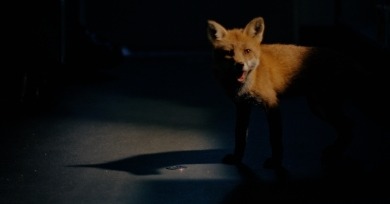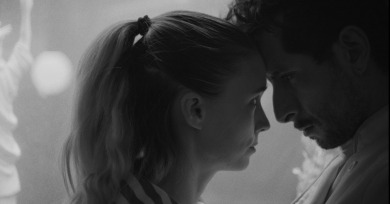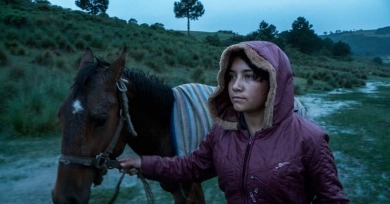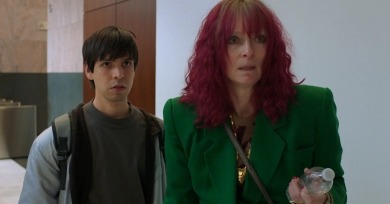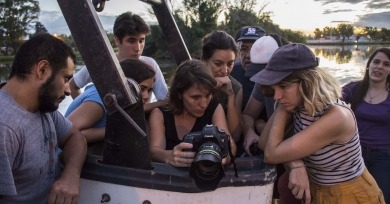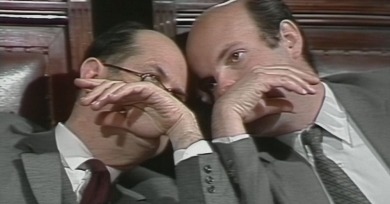Nicolas Pedrero-Setzer
His films occlude the presence of human labor and consumption. Instead, he spotlights the empty, spaceship-like labs and warehouses where meat of all kinds is processed or artificially created before it is packaged by automated robots and sent off to supermarkets.
Over the last decade, Mexican director Alonso Ruizpalacios has established himself as one of the most daring filmmakers working within his national film industry.
Prayers for the Stolen showed her preternatural knack for filming space and time in a realist mode, but Tatiana Huezo's approach to her latest work is even more impressive.
By making formless bureaucracies such as bank call centers and the United States immigration system the target of his comedy, he tries to get laughs by merely describing these systems instead of sitting with their strangeness, making the humor didactic rather than thought-provoking.
I think the film and its characters reach far more interesting places when they do not seek logical answers to Laura’s disappearance or try to solve its mysteries. It’s as if resolving the mystery would confer a small death upon the film because it would lose the very question it’s chasing the whole time.
Mostly using shots in which witnesses sharing their testimonies turn their backs turned to the camera, de la Orden emphasizes their spoken memory while avoiding a visual exhibition of atrocities.
The focus on the packaging and commodification of these plants and vegetables demystifies the agrestal fantasy of so many of our products. At first numbing, Ortín’s images of rote mechanical production begin accruing a subtlesense of dread, appearing as an unbroken and uncaring process.
